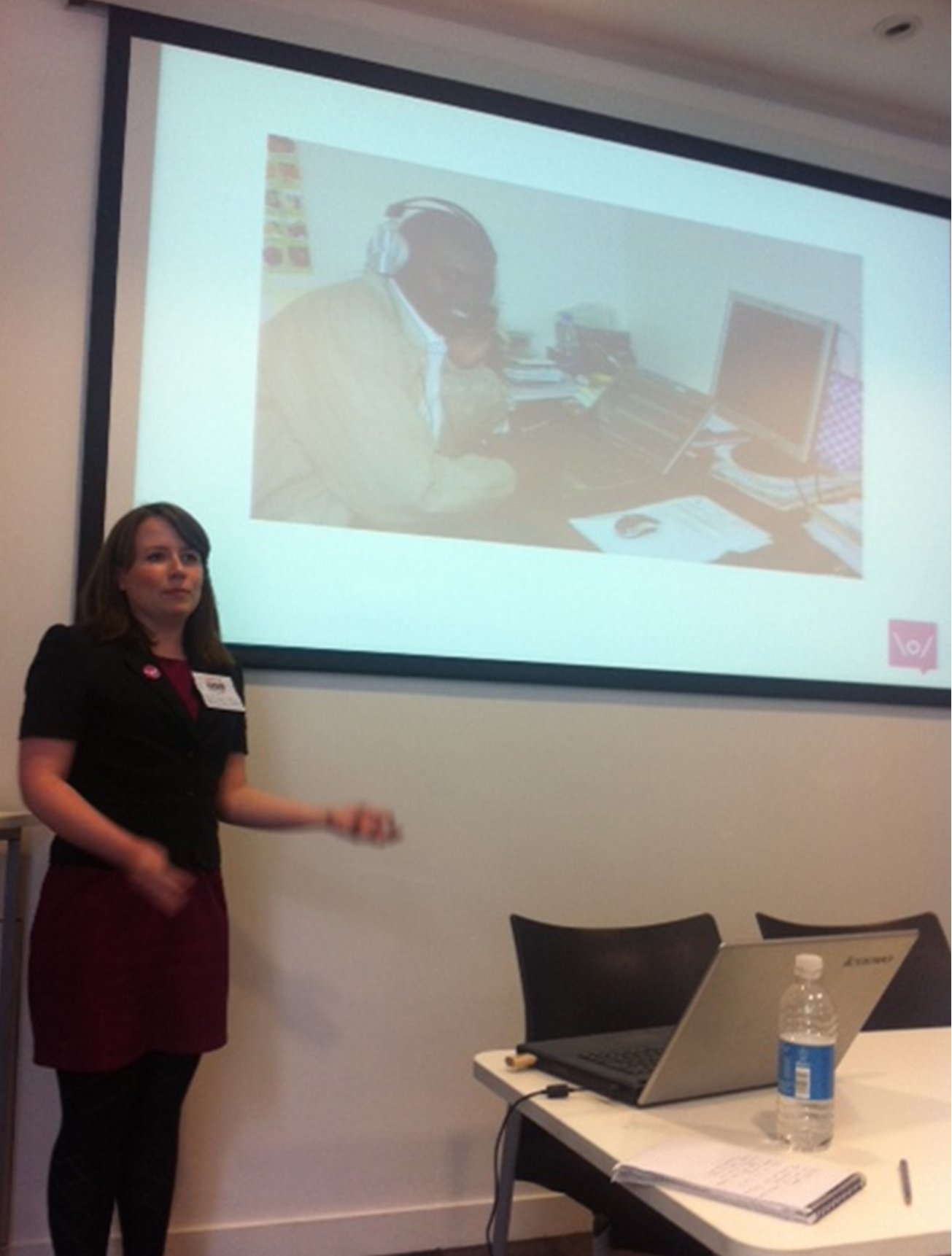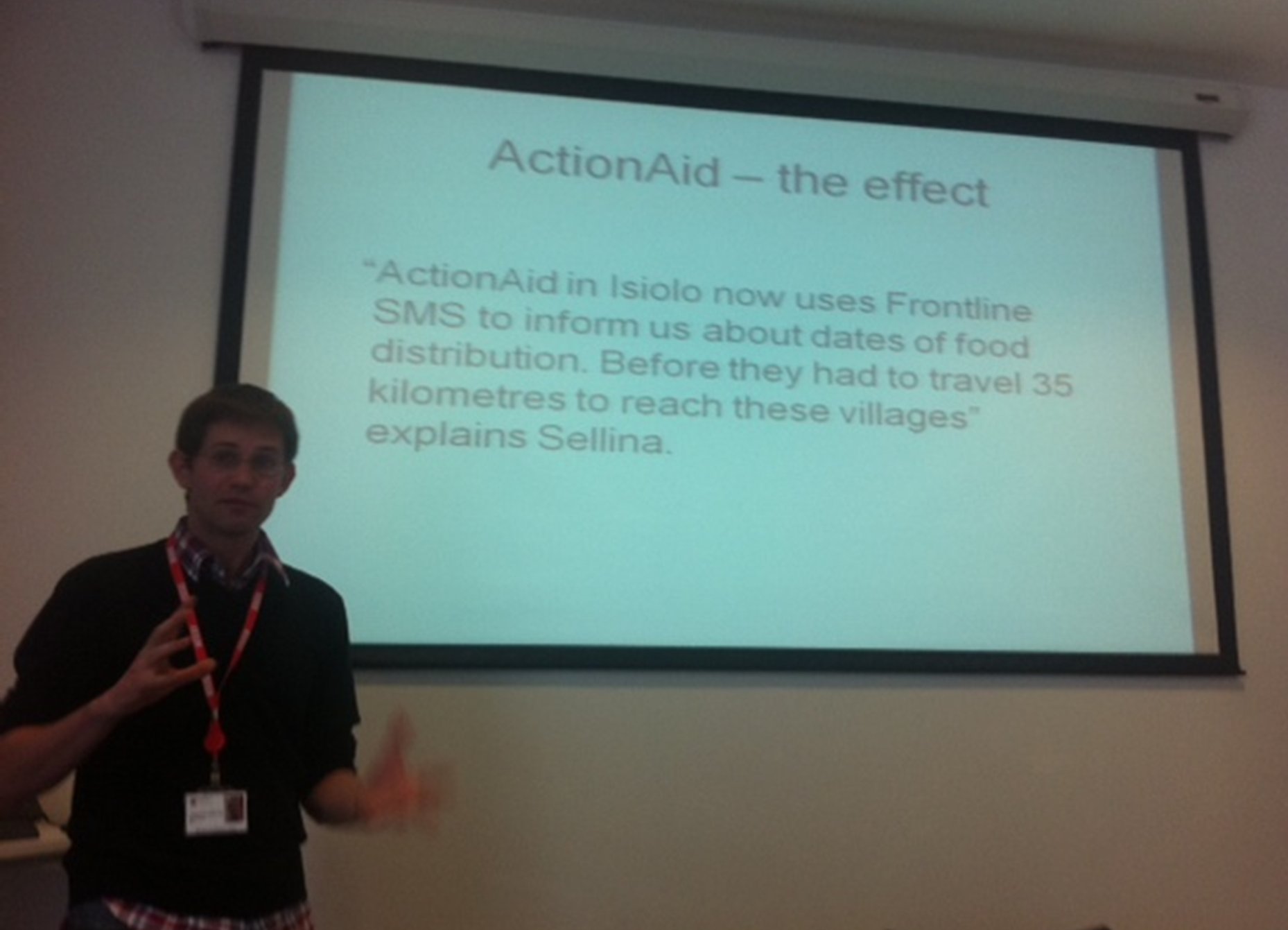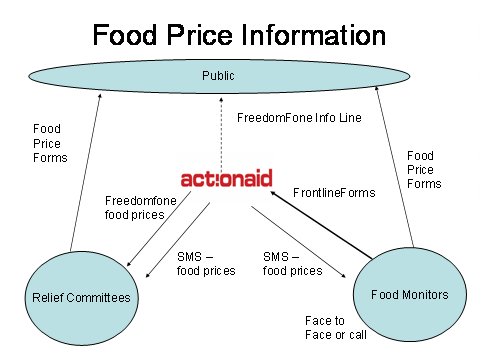On Friday, August 31st 2012 PBS featured a blog post written by Trevor Knoblich, our Media Project Manager. The post focused on our plans to integrate journalism tools into FrontlineSMS, enabling news-gatherers all over the world to integrate SMS more easily into their work. Thanks to PBS for allowing us to repost the piece here - you can find the original on the PBS Media Shift website. If you are interested in hearing more about our work, please email services@frontlineSMS.com to get in touch with the team.
By Trevor Knoblich, Media Project Manager
The field of journalism has faced a number of technology-driven changes in the past decade, including the advent of blogs, the generating and sharing of news via social media, and the tentative move by many governments to provide open data.
So many elements of news have evolved that many experts think we're on the verge of a revolution in digital journalism, including Google's director of news and social products, Richard Gingras. "The media landscape is in the process of being completely transformed, tossed upside down; reinvented and restructured in ways we know, and in ways we do not yet know," Gingras argued recently during a keynote address at the annual conference of the Association for Education in Journalism and Mass and Communication. "The process of change is far from over. Indeed, it will never be over."
NEWS AS A PARTICIPATORY PROCESS
When thinking about all of these changes, I find one shift particularly inspiring: the growing concept of news as a participatory process. In the past, news was produced largely by media outlets and consumed by readers, viewers, or listeners -- a passive audience. Of course, now we view news as a lively and active discussion, in which former "consumers" participate in sharing stories, providing news tips, raising questions, and adding depth and context to stories.
Chris Lehmann, former chief of Yahoo News, recently told the New York Times' David Carr, "News is an activity, a verb really." He was primarily referring to the editorial room, but I think this now equally applies to all people who regularly read, share, write, and contribute to news. We live in an active news culture, in which stories are rarely static, breaking news reaches the world in a matter of seconds, and average citizens have access to many tools to provide news tips, content, and context nearly instantaneously.
This access has been described as public, participatory or citizen journalism, with varying definitions for each -- and no definition that everyone can agree on. That said, regardless of the title we give to this shift in news culture, the combination of ways in which people can contribute to news is encouraging. The more people are seeking, discussing, and shaping information, the closer we may get to a common understanding of the issues and challenges we face in our community, region, nation, or planet. This shift also allows information to spread quickly, and reach more people.
EXPANDING GLOBAL PARTICIPATION
With this in mind, I accepted my role at FrontlineSMS with a specific purpose: to extend global participation in news to people who otherwise would be left out of this shift, meaning those with no or infrequent access to the Internet. Lack of Internet access should not exclude people from receiving, discussing, and shaping the news that affects their lives. And while many people still lack Internet access, nearly everyone has access to a mobile phone, and by extension SMS.
SMS is the most pervasive digital communications platform in existence. As such, news outlets can use SMS to invite more people to participate in news in a variety of ways. Participants may be trained citizen journalists, eyewitnesses sharing news tips or photos, or even commentators on important stories.
Yes, this brings with it the challenge of vetting information, verifying senders, and devising clever mechanisms for being inclusive of a variety of different voices. But I believe we can meet those challenges, and the result will be a more robust audience participating in news in a more informed way. In fact, I've already seen inspiring examples of this from our user base at FrontlineSMS.
In one example, Al Jazeera noticed that while many people around the world were discussing the viral, controversial Kony 2012 video, there was a glaring gap in input from people in Uganda, where much of the discussion is focused. In response, Al Jazeera established the Uganda Speaks program, allowing people in Uganda to join the conversation in a variety of formats, including SMS, e-mail, Twitter and Facebook. For those without Internet access, SMS became a critical channel to weigh in on the global dialogue.
In another example, Indonesian television station RuaiTV trained citizen journalists in a method for texting information on illicit activities by palm oil companies. Citizen journalists would text or call with information about suspected wrongdoings, and RuaiTV would follow up on the news tips. In this manner, citizens were actively working to hold companies and governments accountable to the local legal framework.
At FrontlineSMS, we are motivated by these and similar user stories. These organizations are working to lower the barriers for participating in news debates, whether they are local or global. Via SMS, we can now invite many more people to receive news, share new ideas, and foster discussion around topics that are important to them. In many cases, people have this type of access for the first time in their lives. Thanks to the creativity of our users, potentially millions of new voices are now invited to participate in news. It will be thrilling to hear what they have to say.
Trevor Knoblich works as Project Manager for FrontlineSMS, a 2011 Knight News Challenge winner. He began his career as a federal policy reporter in Washington, DC,then spent 5 years working as a humanitarian specialist. He currently works on issues at the intersection of journalism, technology and developing countries. At FrontlineSMS, he is building tools to help journalists and media outlets around the world improve their ability to gather, track and share news.








